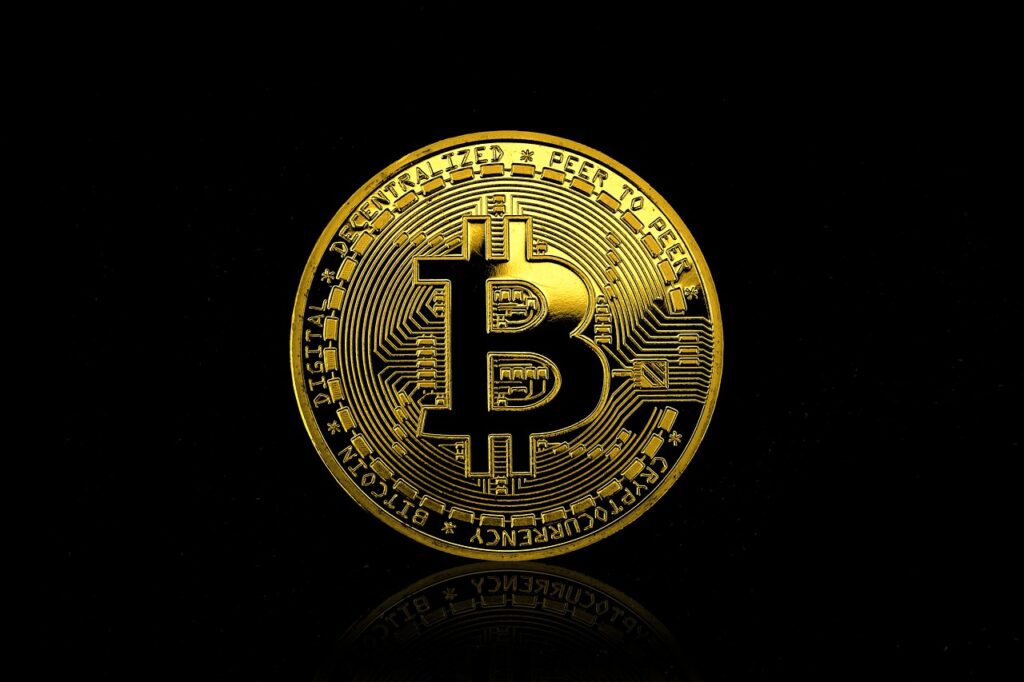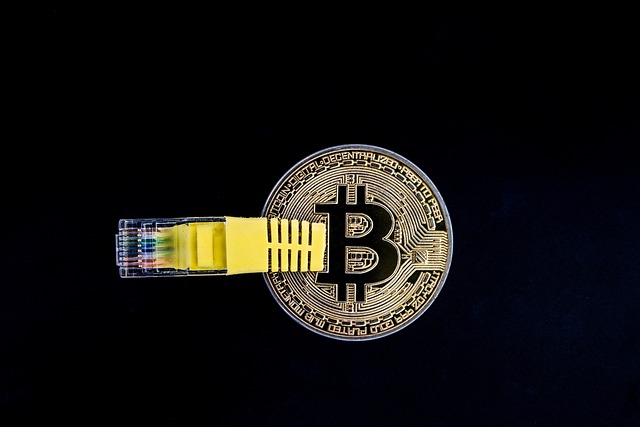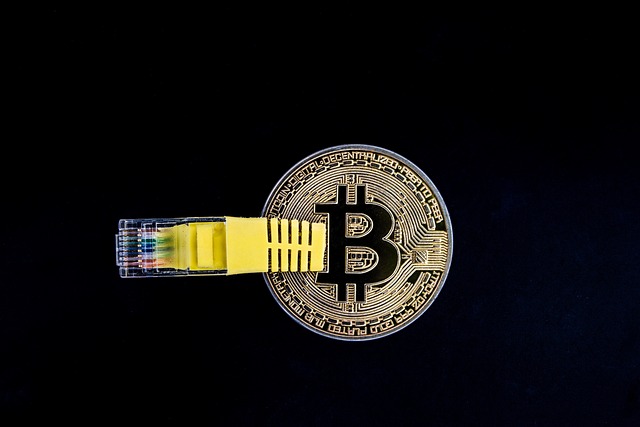Crypto Banking and DeFi: A New Financial Paradigm
Crypto Banking and DeFi: A New Financial Paradigm

Decentralized Finance: Revolutionizing the Banking Industry
Decentralized Finance is poised to revolutionize the banking industry, paving the way for a new era of financial freedom. With traditional banking systems often characterized by intermediaries and centralized control, decentralized finance offers a paradigm shift in the way financial services are accessed and transactions conducted. Through the use of blockchain technology and smart contracts, decentralized finance allows for direct peer-to-peer interactions, removing the need for intermediaries such as banks or credit institutions. This not only eliminates the expensive fees associated with traditional banking but also empowers individuals by providing them with greater control over their financial assets.
Moreover, decentralized finance opens up a range of opportunities that were previously inaccessible to many individuals. Traditional banking systems often exclude those who do not have access to traditional financial institutions, leaving them unable to participate fully in the economy. However, decentralized finance offers a level playing field, enabling anyone with an internet connection to access financial services, irrespective of their geographical location or socioeconomic background. This inclusivity is a game-changer as it empowers individuals to take charge of their own financial destiny and unlock new avenues of economic growth. As decentralized finance continues to evolve and gain traction, we can expect to see a more equitable and inclusive banking sector that truly serves the needs of individuals worldwide.
The Rise of Decentralized Applications (DApps) in Finance
Decentralized applications (DApps) have emerged as a disruptive force in the financial industry, effectively transforming the way we engage with financial services.

One of the key advantages of DApps in finance is their ability to offer enhanced security and privacy. Traditional financial institutions are susceptible to hacking, data breaches, and unauthorized access, putting users’ sensitive information at risk. DApps, on the other hand, leverage the highly secure and encrypted blockchain technology, ensuring that user data and transactions are protected. Additionally, DApps uphold the principles of decentralization, meaning that the power is spread across the network rather than concentrated in a single entity. This distributed network makes it highly resistant to manipulation and censorship, enhancing the overall integrity and trustworthiness of financial operations. As a result, users can have peace of mind knowing that their financial activities are safeguarded and remain confidential.
Unlocking Financial Freedom with Decentralized Lending
Decentralized lending is rapidly gaining traction in the world of finance, providing individuals with a powerful tool to unlock their financial freedom. Unlike traditional lending institutions, decentralized lending platforms operate on blockchain technology, eliminating the need for intermediaries and allowing borrowers and lenders to interact directly. This revolutionary approach opens up a world of opportunities for individuals looking to access loans without the limitations imposed by centralized financial systems.
One of the key advantages of decentralized lending is its accessibility. Traditional lending often involves a lengthy and complex application process, requiring extensive documentation and a good credit history. In contrast, decentralized lending platforms leverage smart contracts to automate loan issuance, making the process quick and seamless. This means that individuals who may have been excluded from traditional financing due to their credit history or lack of collateral can now access funds and pursue their dreams. With decentralized lending, financial freedom becomes more than just a concept; it becomes a tangible reality for individuals around the world.
Exploring the Power of Smart Contracts in Decentralized Finance
Smart contracts have emerged as a powerful tool in the world of decentralized finance (DeFi). These self-executing contracts are built on blockchain technology and have the potential to revolutionize how financial transactions are carried out. By removing the need for intermediaries, smart contracts enable direct peer-to-peer interactions, reducing costs and increasing efficiency. Moreover, they offer increased security and transparency, as all transactions are recorded on the blockchain for anyone to verify.
One of the key benefits of smart contracts in DeFi is their ability to automate complex financial processes. Traditional financial transactions often involve numerous middlemen, paperwork, and delays. With smart contracts, these processes can be streamlined and executed automatically based on predefined conditions. For example, in decentralized lending, smart contracts can automatically disburse loans and enforce repayment terms without the need for a centralized authority. This not only eliminates the potential for human error or bias but also reduces the risk of fraud. Smart contracts have the potential to make financial services more accessible and inclusive by removing barriers and enabling direct and secure peer-to-peer interactions.
The Role of Cryptocurrencies in the Banking Sector of the Future
Cryptocurrencies have caught the attention of the banking sector as they continue to gain prominence in the financial landscape. The potential role that cryptocurrencies could play in the future of banking is immense. One of the main advantages of cryptocurrencies is their ability to facilitate fast and secure transactions across borders. With traditional banking systems, transferring money internationally can be a lengthy and cumbersome process, often taking days to complete. However, cryptocurrencies eliminate this hurdle by offering instant and borderless transactions. This efficiency could redefine how banks handle cross-border payments, making it quicker, more cost-effective, and accessible to a wider range of individuals and businesses.
Moreover, cryptocurrencies also have the potential to increase financial inclusion. In many parts of the world, particularly in developing countries, a significant portion of the population lacks access to basic banking services.

Staking and Yield Farming: Maximizing Returns in the Decentralized Economy
Staking and yield farming have emerged as popular methods for maximizing returns in the decentralized economy. Staking involves holding a specific cryptocurrency in a wallet to support the network’s operations and secure transactions. In return, stakers receive additional tokens as rewards, often in proportion to their stake in the network. This process not only incentivizes users to hold their tokens but also contributes to the ecosystem’s stability and security.
Yield farming, on the other hand, utilizes various DeFi protocols to generate additional income for cryptocurrency holders. Users can deposit their tokens into these protocols and earn interest or rewards in the form of additional tokens. These protocols often employ strategies such as lending, borrowing, or liquidity provision to generate these returns. By actively participating in yield farming, individuals can make their assets work for them, increasing their overall returns in the decentralized economy.
• Staking involves holding a specific cryptocurrency in a wallet to support the network’s operations and secure transactions.
• Stakers receive additional tokens as rewards, often in proportion to their stake in the network.
• Incentivizes users to hold their tokens and contributes to ecosystem stability and security.
• Yield farming utilizes various DeFi protocols to generate additional income for cryptocurrency holders.
• Users can deposit their tokens into these protocols and earn interest or rewards in the form of additional tokens.
• Strategies such as lending, borrowing, or liquidity provision are employed by these protocols to generate returns.
By actively participating in staking and yield farming, individuals can maximize their returns in the decentralized economy. Both methods offer opportunities for crypto holders to make their assets work for them. Whether it’s through staking or yield farming, users have the potential to increase their overall earnings while supporting the networks they believe in.
However, it is important for individuals interested in staking and yield farming to do thorough research before getting involved. Understanding the risks associated with each method is crucial, as there are potential pitfalls such as smart contract vulnerabilities or impermanent loss that could impact one’s returns.
Additionally, users should consider factors such as tokenomics, project reputation, and community engagement when choosing which cryptocurrencies or DeFi protocols to stake or farm with. It is essential to assess whether a project aligns with one’s investment goals and risk tolerance before committing funds.
In conclusion, staking and yield farming provide opportunities for individuals looking to maximize returns within the decentralized economy. By understanding how these methods work and conducting proper due diligence on projects involved, investors can make informed decisions that align with their financial goals. With careful consideration of risks and rewards, participants can navigate this exciting space while contributing positively towards blockchain networks’ growth.
The Emergence of Decentralized Exchanges: Trading Without Intermediaries
As the world of finance continues to evolve, decentralized exchanges have emerged as a game changer, offering a revolutionary approach to trading without intermediaries. Unlike traditional centralized exchanges, where transactions are processed through a central authority, decentralized exchanges operate on a peer-to-peer network, allowing users to trade directly with one another. This eliminates the need for intermediaries such as brokers or clearinghouses, putting the power back in the hands of the users themselves.
One of the key advantages of decentralized exchanges is the enhanced security they offer. With centralized exchanges, users are required to trust a third party with their funds, leaving them vulnerable to potential hacks or security breaches. On the other hand, decentralized exchanges are built on blockchain technology, which ensures that transactions are transparent, immutable, and verifiable. By cutting out intermediaries, users have greater control over their assets, reducing the risk of theft or manipulation. Additionally, decentralized exchanges provide users with greater privacy, as they do not require personal information or identity verification. This offers a level of anonymity that is often lacking in centralized exchanges, appealing to those who prioritize privacy and security in their financial transactions.
Governance Tokens: Empowering Users in Decentralized Financial Systems
Governance tokens are quickly gaining popularity as they empower users in decentralized financial systems. These tokens provide holders with voting rights and decision-making power over the future of a platform or protocol.

By holding governance tokens, users have a say in determining key aspects, such as fees, rewards, and even the addition or removal of new features. This democratic approach to decision-making ensures that the platform’s direction aligns with the community’s interests and needs. It also promotes transparency and accountability, as the decisions made are visible to all token holders. With governance tokens, users no longer need to rely on central authorities to make choices on their behalf. Instead, they have the opportunity to actively contribute to the evolution and success of the decentralized financial system they are part of.
The Challenges and Opportunities of Decentralized Finance
Decentralized finance, or DeFi, offers a myriad of opportunities that have the potential to disrupt the traditional banking industry. One of the main challenges faced by DeFi is the issue of scalability. As the number of participants and transactions increases, the existing infrastructure struggles to keep up with the demands, leading to slower transaction speeds and higher fees. This scalability challenge needs to be addressed in order for DeFi to reach its full potential and provide a seamless and efficient banking experience for users.
Additionally, security is a crucial concern in the realm of decentralized finance. With the absence of intermediaries and centralized authorities, users are responsible for securing their own funds and data. This requires a sound understanding of cryptographic techniques, as well as precautions to avoid falling victim to phishing attacks or malicious smart contracts. While technological advancements such as multi-signature wallets and audited smart contracts have bolstered security measures, constant vigilance and education are necessary to ensure the safety of user assets in the DeFi ecosystem.
Amidst these challenges lie exciting opportunities. Decentralized finance enables financial inclusion by providing services to the unbanked and underbanked populations around the world. Without the need for traditional banking infrastructure, individuals in remote areas can access financial products and services through their smartphones. Furthermore, the transparent and trustless nature of DeFi eliminates the need for intermediaries and expedites transactions, resulting in reduced costs and greater efficiency. This opens up new avenues for innovation and entrepreneurship, as developers and entrepreneurs can build decentralized applications that seamlessly integrate with the existing DeFi ecosystem.
In conclusion, while decentralized finance brings about various challenges such as scalability and security, it also presents exciting opportunities to revolutionize the banking industry. The development and implementation of solutions to overcome these challenges will be pivotal in maximizing the potential of DeFi and paving the way for a more inclusive and efficient financial system.
The Future of Banking: Integrating Traditional and Decentralized Financial Systems
As technology continues to advance and the popularity of decentralized finance (DeFi) grows, the future of banking is shifting towards a hybrid model that integrates traditional and decentralized financial systems. This integration brings forth a multitude of opportunities for both individuals and institutions, while also posing certain challenges that need to be addressed.
One of the main advantages of integrating traditional and decentralized financial systems is the potential for increased accessibility and financial inclusion. By leveraging blockchain technology, individuals who were previously excluded from the traditional banking system can now access financial services such as loans, savings, and investments through decentralized platforms. This has the power to empower individuals in underserved communities and emerging economies, providing them with equal opportunities to participate in the global financial landscape.
However, the integration of traditional and decentralized financial systems also raises concerns around regulatory frameworks and security. As the lines between traditional banking and DeFi blur, it becomes crucial for regulators to adapt and establish clear guidelines to ensure investor protection, prevent money laundering, and maintain financial stability. Additionally, robust security measures need to be put in place to mitigate the risks associated with hacking and fraud in decentralized platforms.
The future of banking lies in finding a balance between the benefits of traditional financial systems and the innovation brought by decentralized finance. By integrating these two worlds, we have the potential to revolutionize the way we bank, unlocking greater financial freedom and inclusion for all.
What is decentralized finance?
Decentralized finance, also known as DeFi, is a revolutionary concept that aims to transform the traditional banking industry by leveraging blockchain technology to provide financial services in a decentralized manner.
How is decentralized finance revolutionizing the banking industry?
Decentralized finance is disrupting the banking industry by eliminating the need for intermediaries, like banks, and enabling direct peer-to-peer transactions. It empowers individuals to have greater control over their financial assets and access a wide range of financial services without relying on traditional institutions.
What are Decentralized Applications (DApps) in finance?
Decentralized Applications, or DApps, are applications built on blockchain networks that facilitate financial activities without the need for intermediaries. These DApps provide services such as lending, borrowing, trading, and more, directly connecting users in a decentralized ecosystem.
How does decentralized lending work?
Decentralized lending allows individuals to lend and borrow funds without the involvement of traditional banks. Through smart contracts, borrowers can secure loans by providing collateral, and lenders can earn interest on their digital assets by lending them out.
What are smart contracts and how do they benefit decentralized finance?
Smart contracts are self-executing contracts with predefined rules written on blockchain networks. In decentralized finance, smart contracts automate and enforce the terms of financial agreements, eliminating the need for intermediaries and increasing efficiency, transparency, and security.
How do cryptocurrencies play a role in the future of banking?
Cryptocurrencies are digital assets that operate on blockchain networks and can be used as a medium of exchange, store of value, or unit of account. In the future of banking, cryptocurrencies are expected to play a significant role in facilitating faster, secure, and borderless transactions, as well as providing financial inclusivity.
What is staking and yield farming in the decentralized economy?
Staking involves locking up cryptocurrencies to support the operations of a blockchain network and earn rewards. Yield farming, on the other hand, is a practice where users provide liquidity to decentralized exchanges and earn rewards in the form of additional tokens. Both staking and yield farming enable individuals to maximize their returns in the decentralized economy.
How do decentralized exchanges work without intermediaries?
Decentralized exchanges (DEXs) allow users to trade cryptocurrencies directly with each other, eliminating the need for intermediaries like traditional exchanges. DEXs operate on blockchain networks and leverage smart contracts to facilitate secure and transparent peer-to-peer trading.
What are governance tokens and how do they empower users in decentralized finance?
Governance tokens are digital tokens that grant holders the right to participate in the decision-making process of a decentralized protocol or platform. In decentralized finance, governance tokens empower users to vote on proposals, suggest improvements, and shape the future of the financial system they are a part of.
What are the challenges and opportunities of decentralized finance?
Challenges in decentralized finance include regulatory uncertainty, scalability issues, and potential security vulnerabilities. However, the opportunities lie in the democratization of financial services, improved accessibility, lower transaction costs, and the potential for financial inclusion on a global scale.
How will the future of banking integrate traditional and decentralized financial systems?
The future of banking is likely to see the integration of traditional and decentralized financial systems, where the strengths of both approaches are leveraged. Traditional banks may adopt blockchain technology and incorporate decentralized finance concepts to provide more efficient, secure, and user-centric financial services.
Todays Featured Product:
Buy, exchange and grow your crypto securely with a Ledger hardware wallet, combined with the Ledger Live app. It’s never been easier to keep your crypto safe and accessible. Buy direct from Ledger.com and get todays Special Offers Here.




